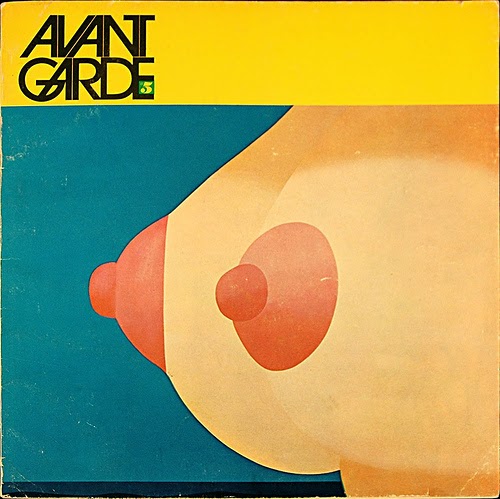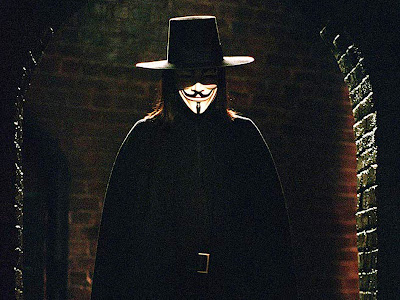Showing posts with label rebel. Show all posts
Showing posts with label rebel. Show all posts
Saturday, March 31, 2018
Thursday, May 5, 2016
Saturday, March 26, 2016
Robert Crumb
Labels:
art,
deviant,
human condition,
imagination,
perception,
perspective,
rebel,
sex
Tuesday, December 29, 2015
Thursday, June 18, 2015
Revolution: It's Time To Rise
Labels:
control,
corporations,
corruption,
death,
deception,
military,
mind control,
money,
rebel,
revolution,
war
Tuesday, May 19, 2015
RISE UP !
Labels:
banks,
betrayal,
corporations,
corruption,
deception,
economy,
federal reserve,
government,
human condition,
money,
rebel,
revolution
Monday, May 4, 2015
45 Years ago today: Kent State massacre
The Kent State shootings (also known as the May 4 massacre or the Kent State massacre) occurred at Kent State University in the US city of Kent, Ohio, and involved the shooting of unarmed college students by the Ohio National Guard on Monday, May 4, 1970. The guardsmen fired 67 rounds over a period of 13 seconds, killing four students and wounding nine others, one of whom suffered permanent paralysis.
Some of the students who were shot had been protesting the Cambodian Campaign, which President Richard Nixon announced during a television address on April 30. Other students who were shot had been walking nearby or observing the protest from a distance.
There was a significant national response to the shootings: hundreds of universities, colleges, and high schools closed throughout the United States due to a student strike of four million students, and the event further affected public opinion—at an already socially contentious time—over the role of the United States in the Vietnam War. (read more)
Saturday, March 7, 2015
Monday, January 26, 2015
Tuesday, January 20, 2015
Mordechai Vanunu
Mordechai Vanunu (born 13 October 1954), also known as John Crossman, is a former Israeli nuclear technician who, citing his opposition to weapons of mass destruction, revealed details of Israel's nuclear weapons program to the British press in 1986. He was subsequently lured to Italy by a Mossad agent, where he was drugged and abducted by Israeli intelligence agents. He was transported to Israel and ultimately convicted in a trial that was held behind closed doors.
Vanunu spent 18 years in prison, including more than 11 in solitary confinement. Released from prison in 2004, he became subject to a broad array of restrictions on his speech and movement. Since then he has been arrested several times for violations of those restrictions, including giving various interviews to foreign journalists and attempting to leave Israel. He says he suffered "cruel and barbaric treatment" at the hands of Israeli authorities while imprisoned, and suggests that his treatment would have been different if he had not converted to Christianity from Judaism.
In 2007, Vanunu was sentenced to six months in prison for violating terms of his parole. The sentence was considered unusual even by the prosecution who expected a suspended sentence. In response, Amnesty International issued a press release on 2 July 2007, stating that "The organisation considers Mordechai Vanunu to be a prisoner of conscience and calls for his immediate and unconditional release." In May 2010, Vanunu was arrested and sentenced to three months in jail on a charge that he met foreigners in violation of conditions of his 2004 release from jail.
Vanunu has been characterized internationally as a whistleblower and by Israel as a traitor. Daniel Ellsberg has referred to him as "the preeminent hero of the nuclear era" (read more) (samson option)
Sunday, October 19, 2014
Wednesday, September 3, 2014
obey giant
Labels:
awakening,
delusion,
human rights,
illusions,
insight,
perception,
propaganda,
rebel
Wednesday, August 27, 2014
"Artist in Residence"
Labels:
art,
beauty,
graffiti,
humour,
imagination,
perception,
perspective,
rebel
Thursday, May 1, 2014
make trouble
Labels:
altruism,
deception,
earth,
human condition,
rebel,
revolution,
sustainable,
truth
Thursday, April 24, 2014
Tuesday, March 18, 2014
Monday, December 23, 2013
Tuesday, November 5, 2013
remember remember the 5th of november
"People shouldn't be afraid of their government
governments should be afraid of their people."
Labels:
corporations,
corruption,
government,
greed,
people,
rebel,
revolution
Wednesday, July 4, 2012
Wednesday, May 23, 2012
Che

Ernesto "Che" Guevara (June 14, 1928 – October 9, 1967), commonly known as el Che or simply Che, was an Argentine Marxist revolutionary, physician, author, intellectual, guerrilla leader, diplomat, and military theorist. A major figure of the Cuban Revolution, his stylized visage has become a ubiquitous countercultural symbol of rebellion and global insignia within popular culture.
As a young medical student, Guevara traveled throughout Latin America and was radically transformed by the endemic poverty and alienation he witnessed. His experiences and observations during these trips led him to conclude that the region's ingrained economic inequalities were an intrinsic result of capitalism, monopolism, neocolonialism, and imperialism, with the only remedy being world revolution. This belief prompted his involvement in Guatemala's social reforms under President Jacobo Arbenz, whose eventual CIA-assisted overthrow solidified Guevara's political ideology. Later, while living in Mexico City, he met Raúl and Fidel Castro, joined their 26th of July Movement, and sailed to Cuba aboard the yacht, Granma, with the intention of overthrowing U.S.-backed Cuban dictator Fulgencio Batista. Guevara soon rose to prominence among the insurgents, was promoted to second-in-command, and played a pivotal role in the victorious two-year guerrilla campaign that deposed the Batista regime.
Following the Cuban Revolution, Guevara performed a number of key roles in the new government. These included reviewing the appeals and firing squads for those convicted as war criminals during the revolutionary tribunals, instituting agrarian land reform as minister of industries, helping spearhead a successful nationwide literacy campaign, serving as both national bank president and instructional director for Cuba’s armed forces, and traversing the globe as a diplomat on behalf of Cuban socialism. Such positions also allowed him to play a central role in training the militia forces who repelled the Bay of Pigs Invasion and bringing the Soviet nuclear-armed ballistic missiles to Cuba which precipitated the 1962 Cuban Missile Crisis. Additionally, he was a prolific writer and diarist, composing a seminal manual on guerrilla warfare, along with a best-selling memoir about his youthful motorcycle journey across South America. Guevara left Cuba in 1965 to foment revolution abroad, first unsuccessfully in Congo-Kinshasa and later in Bolivia, where he was captured by CIA-assisted Bolivian forces and executed.
Guevara remains both a revered and reviled historical figure, polarized in the collective imagination in a multitude of biographies, memoirs, essays, documentaries, songs, and films. As a result of his perceived martyrdom, poetic invocations for class struggle, and desire to create the consciousness of a "new man" driven by moral rather than material incentives; he has evolved into a quintessential icon of various leftist-inspired movements. Time magazine named him one of the 100 most influential people of the 20th century, while an Alberto Korda photograph of him entitled Guerrillero Heroico , was cited by the Maryland Institute College of Art as "the most famous photograph in the world". (read more)

"Guerrillero Heroico"
Che Guevara at the La Coubre memorial service.
Taken by Alberto Korda on March 5, 1960.
Labels:
equality,
freedom,
liberal,
liberation,
rebel,
revolution
Subscribe to:
Comments (Atom)



















